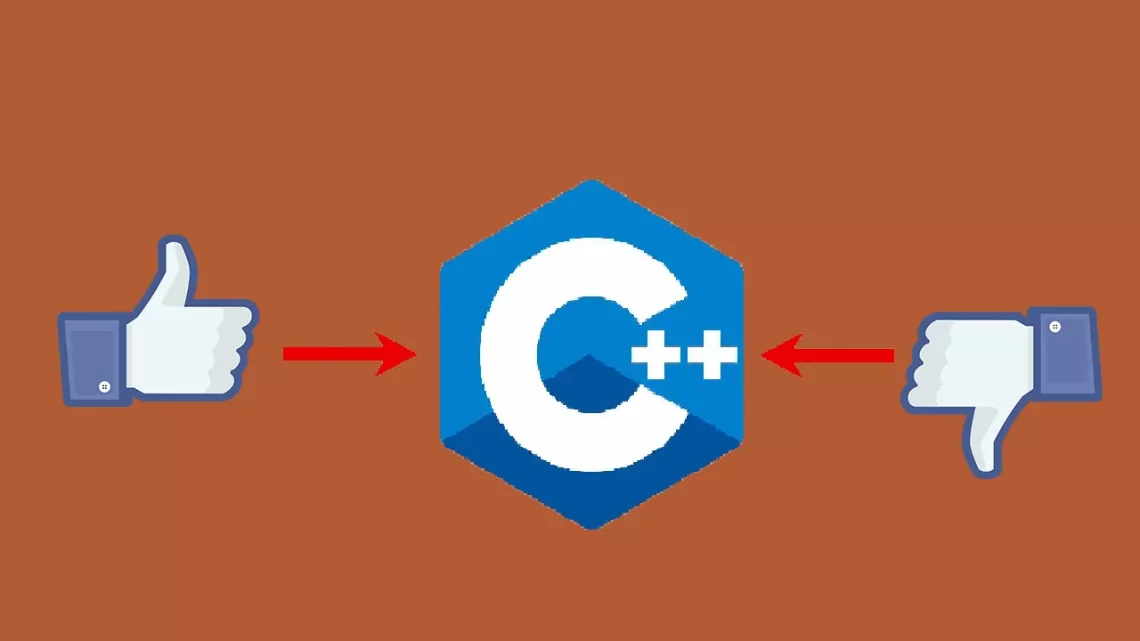C++ has been around for a long time and is still one of the most efficient programming languages. Every beginner is curious to know the advantages and disadvantages of C++ before they start their programming journey. Knowing the benefits and limitations is important to help predict your next step. So, what are you waiting for? Let’s dive in together!
Advantages of C++
1. Portability
C++ is a portable language, meaning that it can run on multiple operating systems and interfaces. This can be a major convenience for programmers who may need to switch between systems. For example, a programmer could write a program on a Linux system and then run it on a Windows system without encountering any errors.
2. Object-oriented
One of the biggest advantages of C++ is its object-oriented programming features, which include concepts like classes, inheritance, polymorphism, data abstraction, and encapsulation. These features allow code reusability and make a program more reliable.
C++ also helps us deal with real-world problems by treating data as an object. This is something that C lacked, making C++ a significant improvement.
3. Multi-paradigm
C++ is a multi-paradigm programming language, which means that it can be used for different types of programming. The term “paradigm” refers to the style of programming, and includes the logic, structure, and procedure of the program. Generic, imperative, and object-oriented are three paradigms of C++.
Generic programming refers to the use of a single idea to serve several purposes. For example, you could use the same function for different data types. (Diazepam) Imperative programming, on the other hand, refers to the use of statements that change a program’s state.
4. Low-level Manipulation
C++ is a powerful programming language that allows for low-level manipulation of data. This makes it an ideal choice for creating embedded systems and compilers.
5. Memory Management
C++ provides programmers with more control over memory management. This can be an advantage or disadvantage, depending on the programmer’s experience and ability to manage memory. With C++, the responsibility for memory management falls on the user rather than on the Garbage Collector. This concept is implemented with DMA (Dynamic Memory Allocation) using pointers.
6. Large Community Support
C++ full course has a large, supportive community that offers online courses and lectures, both paid and unpaid. Statistically, C++ is the 6th most popular programming language on StackOverflow and GitHub.
7. Compatibility with C
C++ is a lot like C. Many C programs can run as C++ programs with no errors. The difference between the two languages is that C++ can run on a file with a .cpp extension, while C cannot.
8. Scalability
Scalability is the term for a program’s ability to handle multiple tasks or processes at the same time. If a program is scalable, it can be used on a small scale with few data, or on a large scale with more data. We can also use scalable applications for resource-intensive tasks.
Disadvantages of C++
1. Use of Pointers
Pointers can be a difficult concept for beginners, and they are known to consume a fair amount of memory. If they are not used correctly, pointers can result in system crashes or strange behavior.
2. Security Issue
Although object-oriented programming is more secure than other programming languages that are not object-oriented, like C, there are still some security issues because of the availability of friend functions, global variables, and pointers.
3. Absence of Garbage Collector
C++’s use of DMA allows for more complete control over computer memory management than is possible with other languages. However, this power comes at the expense of increased complexity and the need for the user to manually take care of unused data.




No Comments